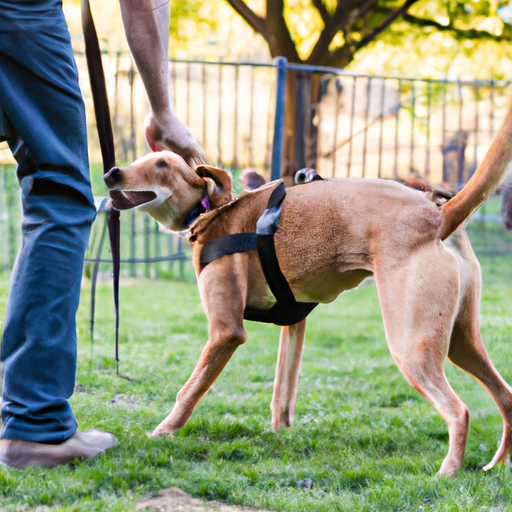If you’re a dog owner, you’ve probably had this experience: You’re enjoying a peaceful walk with your beloved pooch, when suddenly, they lunge at another dog. This can be an alarming and confusing behavior, particularly if your dog is normally calm and friendly. So, why does this happen? As with many aspects of dog behavior, there’s no one-size-fits-all answer. Let’s delve deeper into understanding what causes this behavior and how you can mitigate it.
Table of Contents
- Understanding Dog Aggression
- Reasons for Dog Lunging
- Training to Stop Dog Lunging
- Frequently Asked Questions
Key Takeaways
- Dogs lunge at other dogs due to various reasons including fear, territoriality, or poor socialization.
- Training, patience, and consistency are key to mitigating this behavior.
- Always consult a professional if you’re struggling with your dog’s behavior.
Understanding Dog Aggression
Before we dive into the reasons why your dog may lunge at other dogs, it’s important to understand that this behavior can be a sign of underlying aggression. Aggression in dogs can manifest in various ways, such as lunging, growling, or even biting. However, not all lunging is a sign of aggression.
Dog aggression is a complex issue that often requires professional intervention. If you believe your dog is displaying signs of aggression, it’s important to consult with a trained professional like a certified dog behaviorist.
Reasons for Dog Lunging
Fear or Anxiety
Dogs, just like humans, can experience fear and anxiety. This fear can be towards certain objects, people, or even other dogs. When a dog is scared, their instinct is to protect themselves. One way they do this is by lunging at the perceived threat.
Territoriality
Dogs are naturally territorial creatures. They may view other dogs as a threat to their territory, especially if the other dog is of the same sex. This can trigger lunging behavior as a way to warn off the perceived intruder.
Poor Socialization
Dogs that haven’t been properly socialized may not know how to interact appropriately with other dogs. This can result in lunging behavior as they try to navigate these unfamiliar social situations.
To learn more about how to socialize your dog, check out this informative guide.
Leash Reactivity
Some dogs are fine with other dogs when they’re off-leash but become reactive when on a leash. This phenomenon is known as leash reactivity and is quite common among dogs. You can learn more about leash reactivity and how to manage it on OneTopDog.
Training to Stop Dog Lunging
Understand the Cause
The first step in addressing your dog’s lunging behavior is to identify the underlying cause. This will help you tailor your training approach to your dog’s specific needs.
Train Basic Commands
Commands like “sit,” “stay,” and “leave it” can be incredibly helpful in managing lunging behavior. Consistent training can help your dog learn to control their impulses.
Desensitization and Counter Conditioning
These are two common behavior modification techniques often used to address lunging behavior. Desensitization involves gradually exposing your dog to the trigger (in this case, other dogs) at a distance where they remain calm. Counter conditioning, on the other hand, involves changing your dog’s emotional response to the trigger.
For in-depth guidance on these techniques, consider visiting OneTopDog’s guide on behavior modification.
Professional Help
If your dog’s lunging behavior continues despite your training efforts, it may be time to consult a professional. A certified dog trainer or behaviorist can provide personalized guidance based on your dog’s specific needs.
Frequently Asked Questions
-
Is lunging always a sign of aggression?
No, lunging is not always a sign of aggression. It can also be a sign of fear, anxiety, or poor socialization. -
How can I prevent my dog from lunging at other dogs?
Training, socialization, and consistent reinforcement of positive behaviors can help prevent lunging. If you’re struggling, don’t hesitate to seek professional help. -
What should I do if my dog lunges at other dogs during walks?
Try to redirect your dog’s attention, maintain a safe distance from other dogs, and reward calm behavior.
Dog ownership isn’t always a walk in the park, but understanding your dog’s behavior is the first step in creating a happier, healthier relationship with your furry friend. Remember, if you need help, professionals are always available to guide you. You can find additional resources on dog behavior on OneTopDog.



